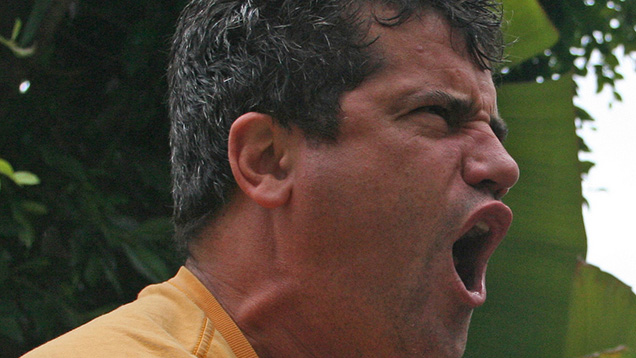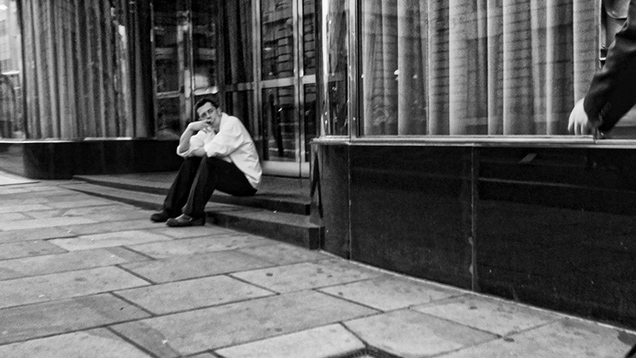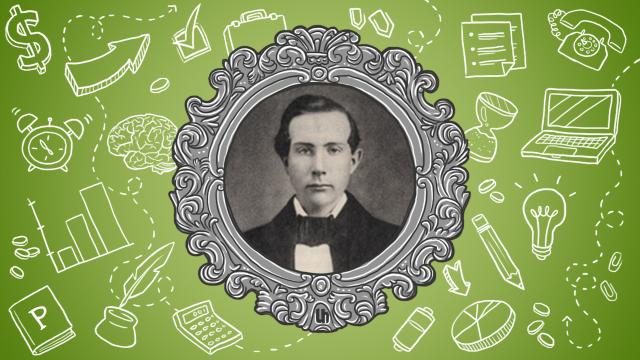Love him or hate him, you can’t deny his impact. John D. Rockefeller was the founder of Standard Oil, the company started in 1870 that fathered modern businesses like Chevron and ExxonMobil. He was also a notable philanthropist. Here are some of the career lessons we can learn from his life.
Photos by Ryan Hyde, Paul Cross, Ian Lamont, Max Khokhlov
Check Your Ego

There’s a thin line between confidence and ego. Even at a young age, Rockefeller recognised the downfalls of getting caught up with his ego, and took precautionary steps to not get distracted by his own hype.
Firstly, he dismissed any puffed up thoughts of himself. As biographer Don Chernow writes in his book Titan, Rockefeller would say to himself:
Because you have got a start, you think you are quite a merchant; look out, or you will lose your head — go steady. Are you going to let this money puff you up? Keep your eyes open. Don’t lose your balance.
Rockefeller would later explain: “These intimate conversations with myself, I’m sure, had a great influence on my life. I was afraid I could not stand my prosperity, and tried to teach myself not to get puffed with any foolish notions.”
Don’t Let Your Temper Get The Best Of You

Rockefeller also noticed his own bad temper. “I think it might be called an ugly temper when too far provoked,” Rockefeller says. In order to make sure this wasn’t an impediment, Chernow writes, “he trained himself to control this temper and tried never to be guided by ego or pique.”
Rockefeller managed to keep a level head, but would see his colleagues’ tempers get the best of them. For example, his technical advisor Sam Andrews was feeling the pressure of the business and an internal company rivalry. Andrews complained to Rockefeller, wishing out loud that he was out of the business. Rockefeller told Andrews to name his price, and bought Andrews’s shares from him for $1,000,000. Almost immediately, Rockefeller was able to sell the shares to another investor for a $US300,000 profit. Andrews protested and Rockefeller offered to sell the shares back to him at original price:
Embittered, Andrews spurned this fair offer and opted to keep the money. Had he kept the stock, it would have been worth $US900 million by the early 1930s, by one estimate. This rash decision, motivated by pure pique and a bruised ego, kept him from becoming one of America’s richest men.
Andrews could have swallowed his pride and reversed his decision. He’d have saved himself hundreds of millions of dollars. Yet as Chernow writes: “[Rockefeller associate] Maurice Clark probably caught the truth about Sam Andrews when he said, “Before selling he was sore at John. After selling he was sore at himself.””
Don’t let your temper get the best of you. Listen closely to people and learn from them. Rockefeller also emphasises the importance of listening. He advises, “It is very important to remember what other people tell you, not so much what you yourself already know.”
Turn Looking For Work Into Your Full-Time Job

If you’re unemployed, looking for work can be a long string of discouragements. You might have nothing to show for your hours — or days, or months — of work, even after dozens of job applications and several interviews. But you must persist and treat finding work like a full-time job.
Rockefeller was born into poverty, and had no family connections or friends to pull him into the world of business. “Though times were tough, the boy set out with no modest ambition as he pored over the city directory, identifying those establishments with high credit ratings,” biographer Don Chernow writes.
There was no internet in those days, so Rockefeller would walk around to different companies and inquire about opportunities. He persisted at this from Monday to Saturday:
Despite incessant disappointment, he doggedly pursued a position. Each morning, he left his boarding house at eight o’clock, clothed in a dark suit with a high collar and black tie, to make his rounds of appointed firms. This grimly determined trek went on each day — six days a week for six consecutive weeks — until later in the afternoon.
If you’re feeling down your luck, build up your confidence. Chernow suspects that Rockefeller’s confidence and detached ego buoyed his persistence:
Because he approached his job hunt devoid of any doubt or self-pity, he could stare down all discouragement. “I was working every day at my business — the business of looking for work. I put in my full time at this every day.” He was a confirmed exponent of positive thinking.
If you’re struggling finding work, spend time understanding what great resumes look like and meeting new people. Sometimes, in addition to submitting your resumes, free work could better communicate your skills and personality to your potential employers.
Work Steadily And Take Breaks

Today, we treat our “busy-ness” and lack of sleep as badges of honour. And although “hustle/” can solve a lot of problems, it isn’t the silver bullet for every issue. Sometimes, we work hard but we’re just spinning our wheels pointlessly. Rockefeller was extremely careful with his energy. As Chernow writes, “He worked at a more leisurely pace than many other executives, napping daily after lunch and often dozing in a lounge chair after dinner.”
Rockefeller strongly believed in working steadily and consistently, instead of biting off more than he could chew. According to Chernow, Rockefeller says:
It is remarkable how much we all could do if we avoid hustling, and go along at an even pace and keep from attempting too much.
Don’t fall for the glittering lure of quantity. Harness the power of concentration in order to solve problems. Rockefeller asks:
Do not many of us who fail to achieve big things…fail because we lack concentration — the art of concentrating the mind on the thing to be done at the proper time and to the exclusion of everything else?
Rockefeller was an extremely hard worker, but he was steady and treated his work like the marathon that it was. He would also take breaks throughout his day. His mid-morning snack of crackers and milk, and naps after lunch and dinner, were designed to conserve energy and balance his physical and mental forces. Rockefeller advises, “It is not good to keep all the forces at tension all the time.”
There’s no doubt Rockefeller has a lot of critics, and the full picture of his life is more complex than a few lessons. Regardless of what you think of his questionable business practices, there are still lessons from his life that you can apply to your own. Don’t let your ego get the best of you. If you’re unemployed, dedicate yourself to it fully. Instead of working in spurts, conserve your energy so you can work steadily and consistently.

Comments
One response to “John D. Rockefeller’s Best Career Lessons”
JDR looks like Neville Longbottom from Harry Potter!